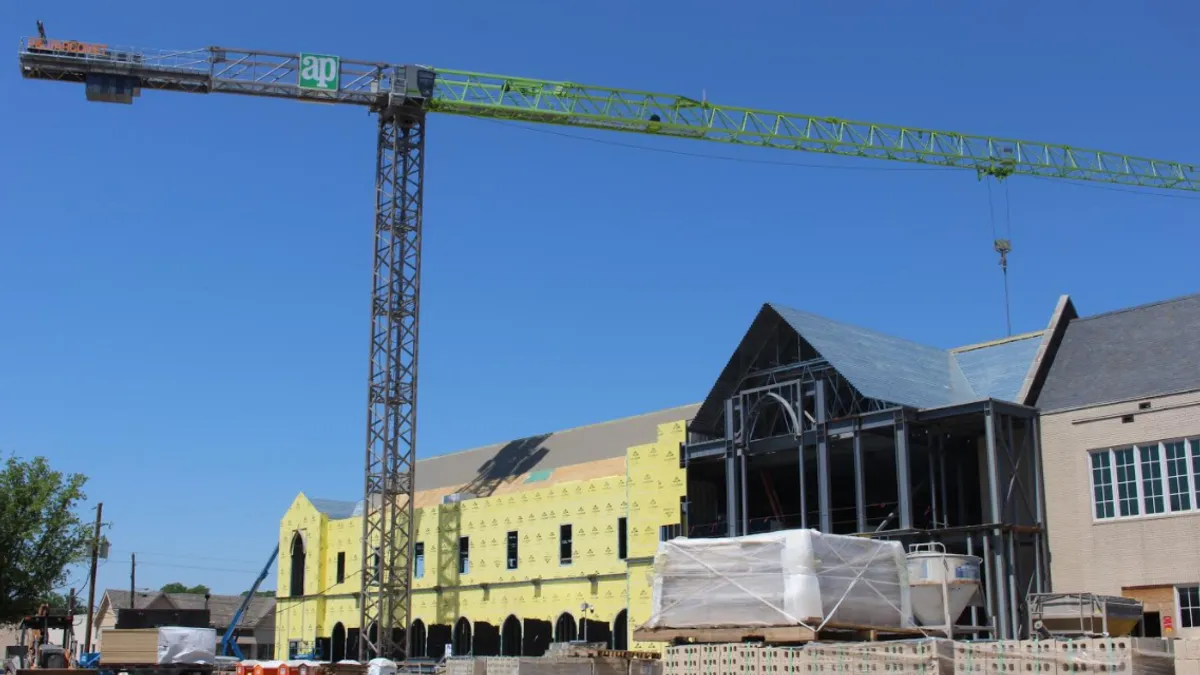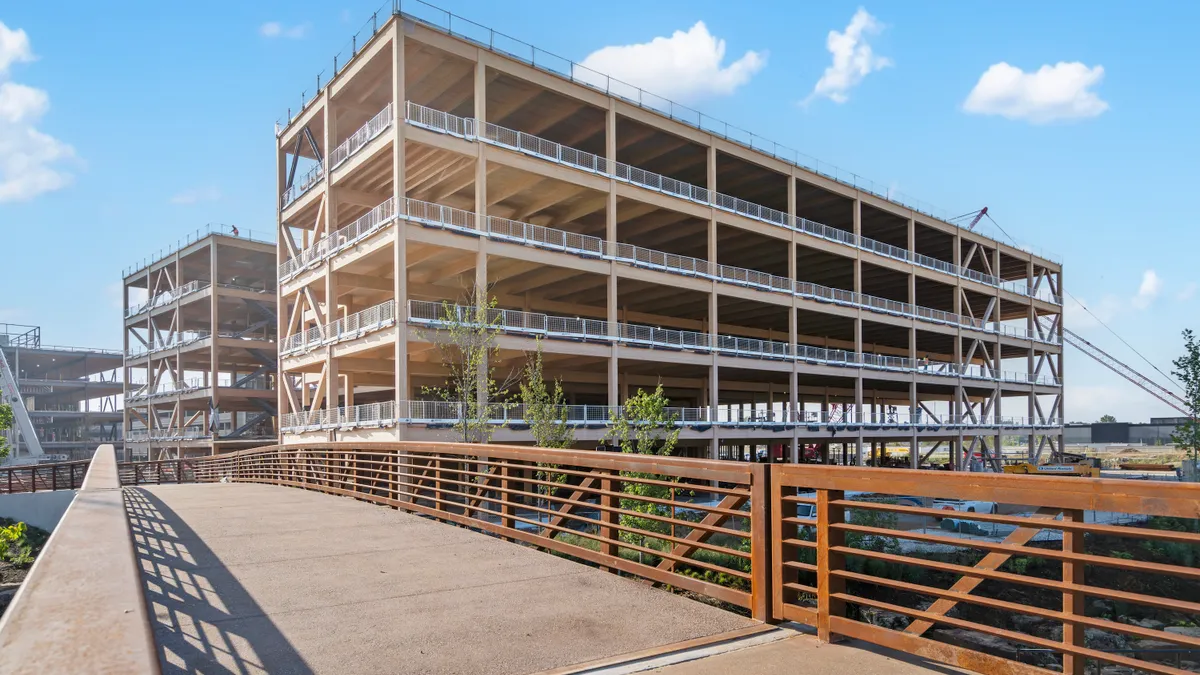This article is part of a series of conversations that Construction Dive reporters and editors are having with industry leaders about the effect that the COVID-19 pandemic is having on their firms and their markets. To add your voice to the discussion, email us here.
Family-owned Adolfson & Peterson Construction has been in business for nearly 75 years and has 700 employees working from offices in Arizona, Colorado, Minnesota, Texas and Wyoming. It offers preconstruction and construction services to a range of clients including those in education, healthcare, hospitality, industrial, municipal and senior living market segments.
During the coronavirus pandemic, most projects in the company’s Eastern Region division have continued, including one of its most high-profile jobs, construction of the PGA of America headquarters in Frisco, Texas. Despite the pandemic, the project remains on schedule and is on track to be completed by mid 2022.
Here, Construction Dive talks with executive vice president and COO of the eastern regions Corbett Nichter about supply chain challenges, keeping workers safe and future concerns.
How has the coronavirus affected your firm so far?
The work performed by our teams on jobsites has not changed. From the onset, AP implemented screening protocols and industrial hygiene rules, which are in place and enforced through safety instructions each morning. It should be noted that our trade partners place significant value on the health and safety of their employees as well as other individuals on the jobsite. We’re collectively looking out for each other.
Our teams have been impacted by supply chain delays, especially steel and electronic components from China and tile from Spain and Italy. Fortunately, AP worked ahead of schedule, and we procured a number of products and materials toward the end of last year. The materials were onsite during what turned out to be an uncertain labor and supply market.
The delays primarily come from a small number of privately funded projects. If delays do happen, our trade partners are reallocating resources to different projects that are productive and moving forward. We work closely with our trade partners to move teams to other active AP projects so people can continue to make a living. It is so important to support the industry as a whole right now.
What measures have you put in place since the outbreak began?
Good communication has been the key to success, especially during this crisis. When COVID-19 hit domestically in March, we quickly and efficiently upped our communications efforts.
Our preconstruction team began holding weekly coordination calls with trade partners to constantly have a pulse on the industry’s supply chain impacts. AP teams also began hosting weekly Microsoft Teams calls with trade partners and weekly email updates to determine how we can best support them.
These calls have been a lifeline to moving forward during this pandemic, allowing us a good picture of market conditions like supplier pricing changes, labor impacts and what is being done internally to respond to the challenge. Through these practices, we discovered several dynamics that were impactful to the projects and developed “best practices” to minimize disruptions and supply chain impacts. This has allowed us to maintain project schedules.
Additionally, AP developed a dedicated response team to support its team members and immediately address issues or changes at the start of the pandemic. They partnered daily with team members in each region across the country to address operational and safety issues and implemented office and project site screening protocols that are required on a daily basis to minimize the risk of exposure to COVID-19.
How are you keeping workers safe?
AP has implemented jobsite and office safety requirements into our standard operating procedures to help prevent and control the spread of COVID-19. These procedures are adjusted as new state, county and local government mandates are initiated. They include:
- Screening of all employees, subs and visitors to jobsites and offices, including temperature checks.
- Social distancing (remaining 6 feet apart while working).
- Use of face coverings.
- Enhanced sanitation measures in common and high-traffic areas.
Our screening questionnaires are contactless and paperless for all AP team members, available on AP’s intranet and all computer desktops. The screening can be completed from home just prior to arriving or immediately upon arrival at the site. For those unable to complete the screening online, each project site and office also has paper copies available.
AP also has a library of resources available on our intranet site, providing safe practices and company expectations on methods to remain safe and healthy.
What are your biggest concerns as construction begins to reboot?
I believe we will likely see continued material delays, particularly related to supplies sourced overseas. With far-reaching pandemic impacts, there may be unforeseen stalls in project funding due to an expected dip in Q3 market conditions. Since we don’t fully understand the pandemic’s true depth yet, there may be challenging times ahead for AEC industry efficiencies. However, these are committed and hard-working industries that will push through and solve any issues.
Despite the uncertainty ahead, AP is a strong, healthy company, and I believe as a whole, construction is a very resilient industry, and we will band together to overcome these challenges and keep producing great projects for our communities.




















